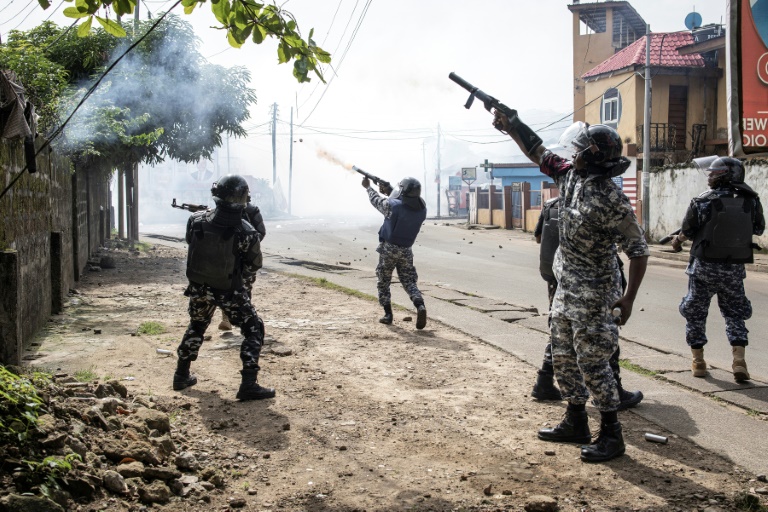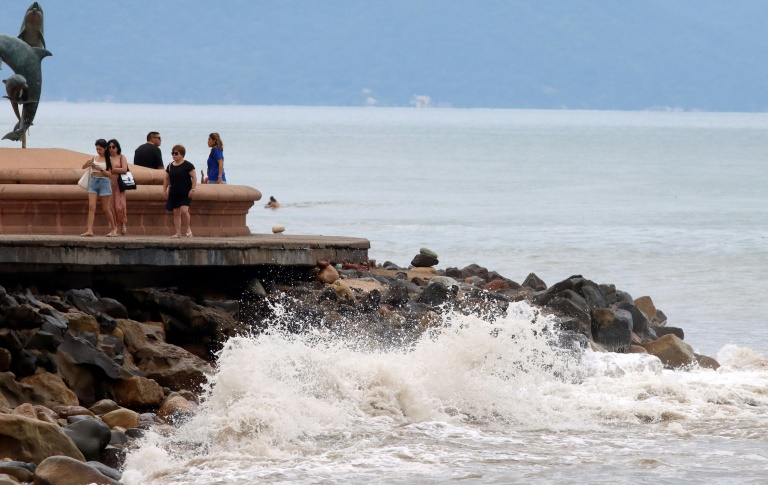The EU’s election observation mission to Sierra Leone on Tuesday highlighted statistical inconsistencies, intimidation and political violence in its final report on the June vote, recommending a string of measures to boost transparency, safety and freedom of expression.
“Voters’ trust in the credibility of elections was undermined by (a) lack of transparency during critical stages of the process,” the mission said in the report, which it presented to President Julius Maada Bio on Tuesday.
“Tabulation and announcement of results proved to be the tipping point for the credibility of the elections. The entire process was opaque, meaningful observation was impeded and the declaration of winners was not followed by publication of disaggregated results per polling station.”
Bio was re-elected for a second term in the first round of voting on June 24, with 56.17 percent of the ballots, according to results released by the electoral commission.
The opposition All People’s Congress (APC) has disputed the results and refused to participate in local or national government, with most MPs boycotting parliament.
“Following the declaration of the results of the parliamentary elections… it was clear that result totals published by the (election commission) showed several statistical inconsistencies and mathematical improbabilities,” the EU mission said.
It also cited political violence in the weeks leading up to the polls, including at least 17 violent attacks.
“Political activism was also discouraged through a demonstrative and disproportionate use of force by security agencies prior to, during and after election day,” it said.
“Live ammunition and tear gas was fired outside the main opposition party’s headquarters in Freetown twice… In each case one person was killed.”
The mission said Bio’s Sierra Leone People’s Party (SLPP) had blurred the line between governing and campaigning, with ministers participating in rallies and extensive campaign messaging published on government websites and social media accounts.
On August 31, the US State Department announced visa restrictions on those “believed to be responsible for, or complicit in, undermining democracy in Sierra Leone”, including through vote rigging or intimidation of observers.
The names of those targeted were not made public, and visa decisions are confidential under US law.
In September, Bio accused the US of pressuring him to interfere in the election count, speaking during an event in Washington.
The election commission, he said, “had done all their calculations, collations, all the processes. I was now requested to stop them from calling the result by the United States. So I don’t know who is accusing who of interference.”
The EU mission on Tuesday flagged what it described as public intimidation “by state and non-state actors” of a citizen observer group that published a parallel vote tabulation challenging the electoral commission’s figures.
It said that intimidation, “punctuated by a disinformation campaign, aimed to clamp down on voices of dissent and clouded future perspectives for genuine, non-partisan civic activism”.
It also criticised a 2021 cyber crimes act, which it said “puts undue restrictions on freedom of expression”.







